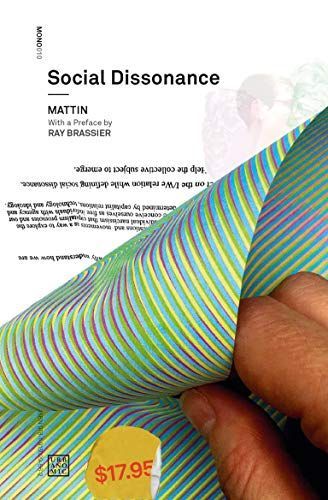
Social Dissonance
An argument that by amplifying alienation in performance, we can shift the emphasis from the sonic to the social. Works in sound studies continue to seek out sound “itself”—but, today, when the aesthetic can claim no autonomy and the agency of both artist and audience is socially constituted, why not explore the social mediation already present within our experience of the sonorous? In this work, artist, musician, performer, and theorist Mattin sets out an understanding of alienation as a constitutive part of subjectivity and as an enabling condition for exploring social dissonance—the discrepancy between our individual narcissism and our social capacity. Mattin's theoretical investigation is intertwined with documentation of a concrete experiment in the form of an instructional score (performed at documenta 14, 2017, in Athens and Kassel) which explores these conceptual connotations in practice, as players use members of the audience as instruments, who then hear themselves and reflect on their own conception and self-presentation. Social Dissonance claims that, by amplifying alienation in performance and participation in order to understand how we are constructed through various forms of mediation, we can shift the emphasis from the sonic to the social, and in doing so, discover for ourselves that social dissonance is the territory within which we already find ourselves, the condition we inhabit.